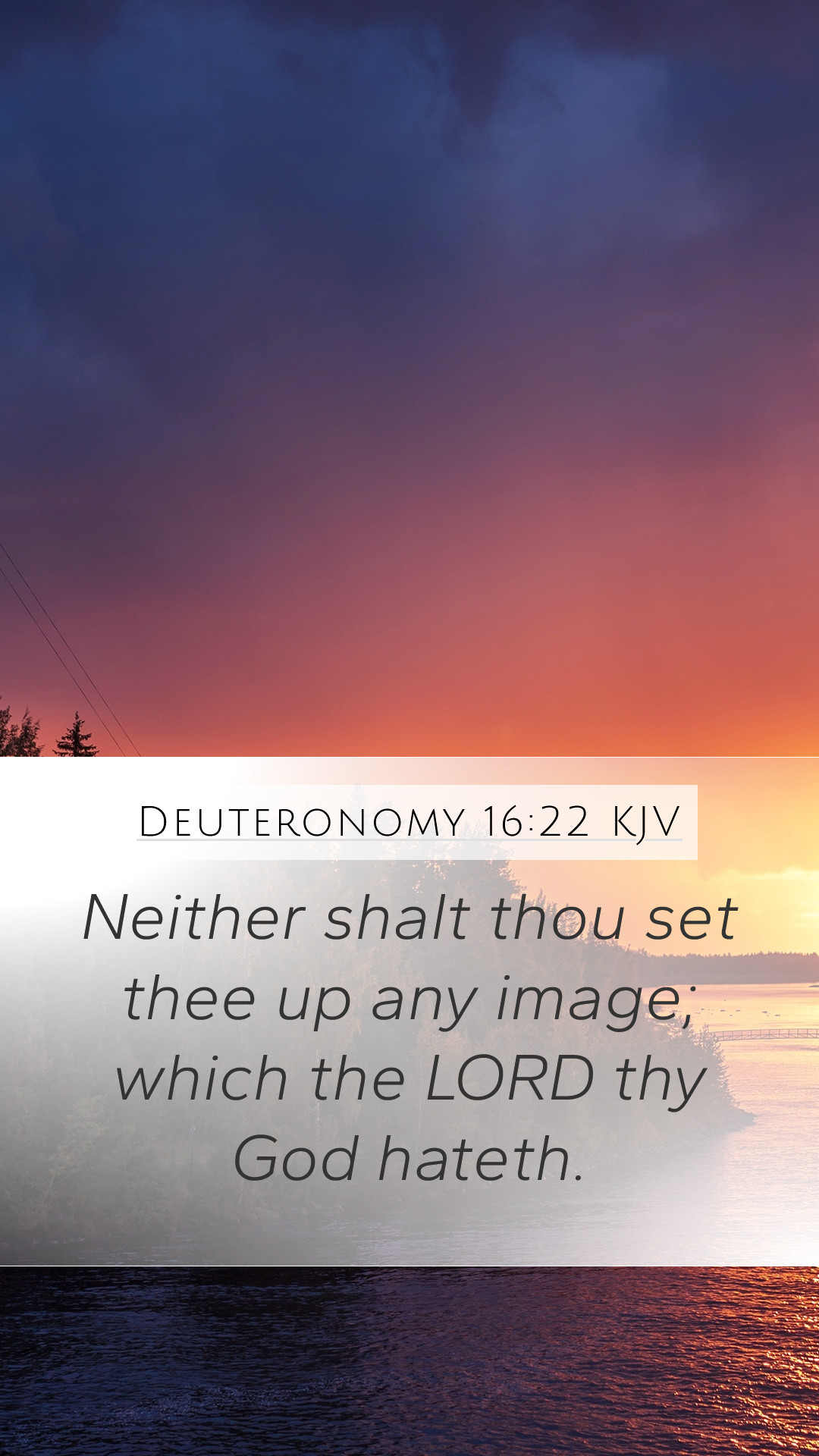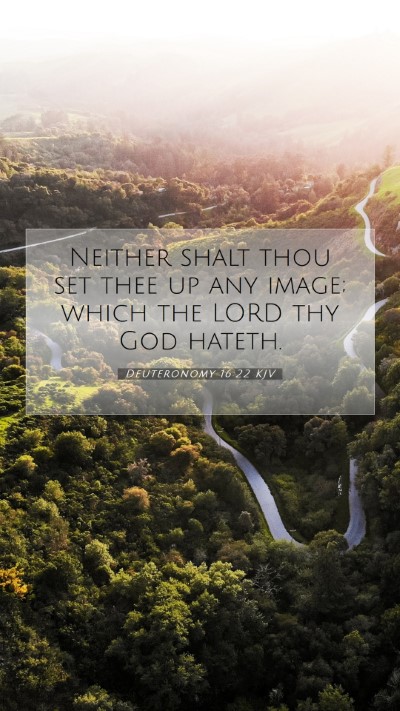Understanding Deuteronomy 16:22
Deuteronomy 16:22 states, "Neither shalt thou set thee up a pillar; which the Lord thy God hateth." This verse carries significant weight in its context, indicating God's stance on idolatry and the practices of surrounding nations. The history behind this command, as illustrated through various public domain commentaries, lends us insight into its implications and the understanding of Scripture grouped around it.
Meaning and Context
In this command, God instructs the Israelites regarding their worship practices after they enter the Promised Land. Setting up pillars was commonly associated with pagan worship, as seen in the practices of neighboring cultures. Here, God emphasizes the importance of pure worship and the rejection of any form of idolatry:
-
Matthew Henry's Commentary: Henry articulates that this prohibition was a warning against the customs that led Israel to stray towards idol worship. He notes that pillars were often erected in honor of false gods, which God detests.
-
Albert Barnes' Notes: Barnes highlights the idea that these pillars, representing human-made symbols of worship, are contrary to divine command. He stresses that God desires a worship that is aligned with His holiness and truth, away from the traditions that corrupt faith.
-
Adam Clarke's Commentaries: Clarke adds that the command illustrates the uniqueness of Israel's covenant relationship with God. The mention of "hateth" indicates a strong and active disapproval, solidifying that these practices lead to severe consequences for those who forsake Yahweh.
Significance of This Command
This command reflects the overarching theme of obedience and exclusion of foreign influences in worship. It reveals God's intention for His people to remain distinct and committed to Him:
-
Biblical Exegesis: The command underscores the importance of maintaining purity in worship and serves a dual purpose: to protect Israel from corruption and to set them apart as a holy nation.
-
Interpretations in Bible Study: Users engaging in online Bible study or studying in groups can explore how this command might apply to modern contexts of spiritual loyalty and cultural influences.
-
Application of the Verse: The notion of rejecting what God hates helps believers today assess their own practices and the authenticity of their worship, encouraging them to reflect on their lives and the influences they accept.
Related Cross References
Understanding Deuteronomy 16:22 is enriched through its connections to similar themes throughout the scripture. Additional verses worth contemplating in relation to this command include:
- Exodus 34:13 - "But ye shall destroy their altars, break their images, and cut down their groves."
- Leviticus 26:1 - "Ye shall make you no idols nor graven image, neither rear you up a standing image."
- Numbers 33:52 - "Then ye shall drive out all the inhabitants of the land from before you..."
- 1 Kings 14:23 - "...they built them high places, and images, and groves..."
Conclusion
Deuteronomy 16:22 serves as a powerful exhortation against idolatry and impure worship. For anyone seeking Bible verse meanings, Bible verse interpretations, or Bible verse explanations, this verse exemplifies the importance of adhering to God's directives for maintaining spiritual integrity. Exploring its implications and applications enables a richer understanding of why God cares profoundly about how His people worship and the influences they allow into their faith practices.


